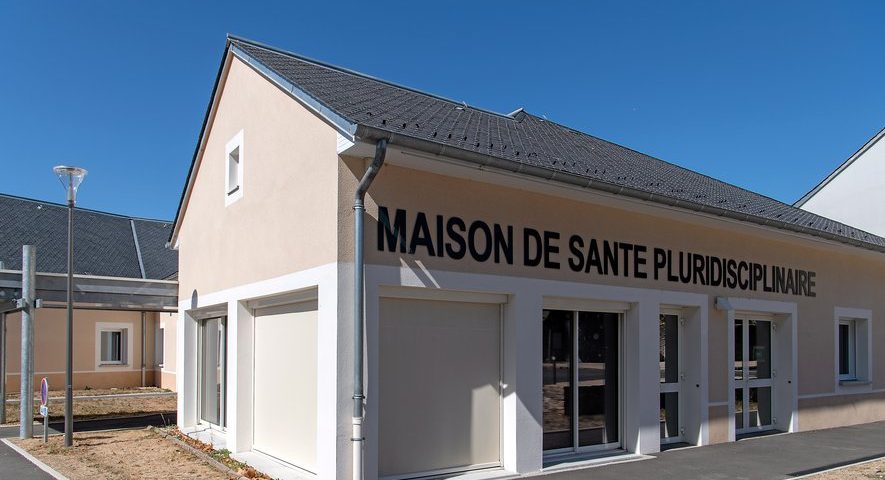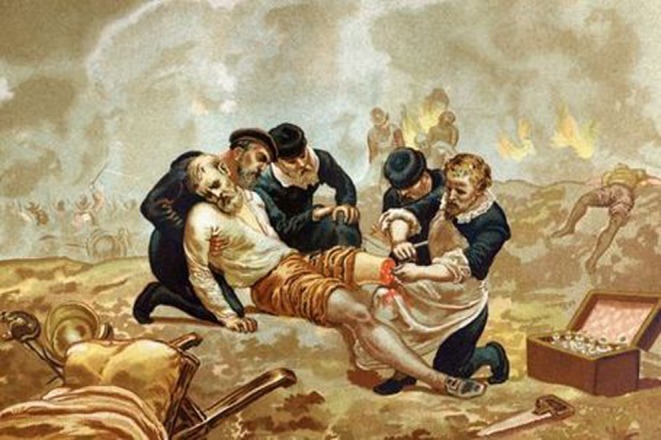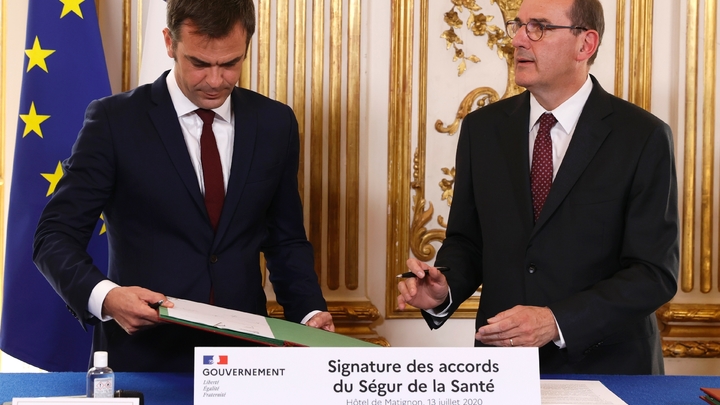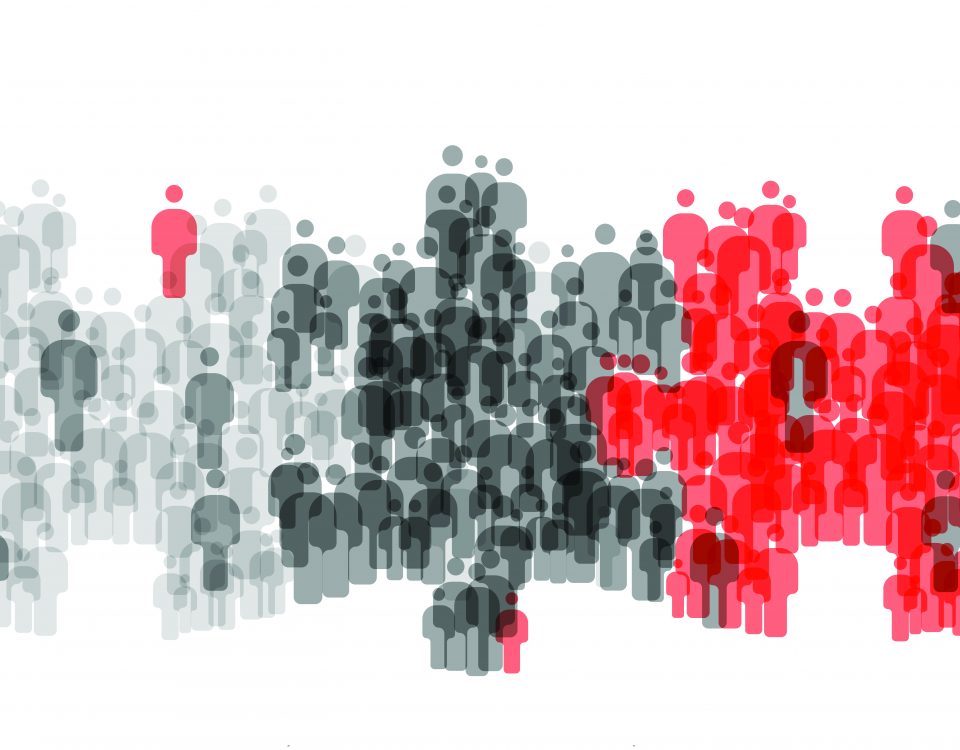


Directory of our Researchers Working on Health
12 December 2021
The Reform of Access to Health Studies in France
12 December 2021An Increasingly Constrained Autonomy for Private Healthcare Professionals
Par Anne Moyal, Centre de sociologie des organisations et LIEPP
In February 2019, while visiting a multi-professional health care center (Maison de Santé Pluriprofessionnelle – MSP) in France, the then-Prime Minister Édouard Philippe declared, “This initiative here, and others in France, show the way. And the objective of the new bill is to ensure that these initiatives can be reproduced throughout the country, so that the collective practice of medical care becomes the norm”. He was careful to specify, however, that this model of practice would not be “mandatory”, and anxious not to call into question the autonomy and freedom of organisation of private health care professionals in the ambulatory sector.
MSPs are ambulatory health care structures that bring together private professionals, mainly general practitioners (GPs) and paramedics (nurses, physiotherapists, chiropodists, speech therapists, etc.), and offer coordinated primary care – from prevention to acute care, including therapeutic education. Introduced in the French law in 2007, they have been consistently promoted by successive governments as a response to the health care system’s main demographic, epidemiological, organizational, and financial challenges. Although they have grown in number from around 20 in 2008 to almost 1,900 in 2021, they are struggling to convince private health care professionals: to date, only around 20% have chosen this model of practice.
How does the French government try to regulate primary care practice? How do private health care professionals react and what role do they play in this regulatory process? What does the public policy supporting MSPs tell us about the deeper transformations of the French health care system?
A Tension Between Regulatory and Liberal Logics
Philippe’s public statement clearly reflects the central tension in the French health care system between a liberal logic based on the autonomy of ambulatory health care practitioners – who are mainly private professionals – and a regulatory logic through which the State seeks to organise a sector hitherto left in the hands of the medical profession.
Since the beginning of the 2000s, several reforms have been undertaken to organise ambulatory care in response to new structural challenges: population ageing; increase of chronic diseases; medical care supply shortage and difficulties of access to medical care in certain territories; insufficient coordination between ambulatory health care professionals but also between ambulatory and hospital sectors; under-developed public health and especially prevention…
 MSPs are a key measure of the renewal of health policies in France: these new organisations are presented in several public reports(1)Bernier Marc, 2008, « Rapport de la commission “Affaires culturelles, familiales et sociales” », Assemblée nationale ; HCAAM, 2007, « Rapport du Haut conseil pour l’Avenir de l’Assurance Maladie pour 2007 » ; Juilhard Jean-Marc, 2007, « Offre de soins : Comment réduire la fracture territoriale ? – Synthèse du rapport », Sénat, Commission des affaires sociales.as one of the responses – if not the main one – to all these challenges. They would make it possible to attract young GPs, facilitate coordination between professionals, and enable the development of public health activities, in order to ultimately improve the quality and efficiency of ambulatory health care.
MSPs are a key measure of the renewal of health policies in France: these new organisations are presented in several public reports(1)Bernier Marc, 2008, « Rapport de la commission “Affaires culturelles, familiales et sociales” », Assemblée nationale ; HCAAM, 2007, « Rapport du Haut conseil pour l’Avenir de l’Assurance Maladie pour 2007 » ; Juilhard Jean-Marc, 2007, « Offre de soins : Comment réduire la fracture territoriale ? – Synthèse du rapport », Sénat, Commission des affaires sociales.as one of the responses – if not the main one – to all these challenges. They would make it possible to attract young GPs, facilitate coordination between professionals, and enable the development of public health activities, in order to ultimately improve the quality and efficiency of ambulatory health care.
In a predominantly private sector, the government has opted for an incentive-based and contractual policy to encourage professionals to regroup together in MSPs. First, this policy involves a labeling mechanism through which the Regional Health Agencies (ARS) grant the status of MSP to multi-professional teams that commit to offering better work conditions for professionals and better access and quality of care for patients. Second, additional remunerations paid by the health insurance fund (CPAM) compensate for the time professionals spend on new coordination and public health activities, in addition to their fee-for-service remunerations. While this unprecedented contractualisation with the public authorities does not call into question their private status, it entails potentially significant transformations in professional practices, both in their organisation and in their content.
An Alignment of Political and Professional Interests
In addition to other studies that have focused on reforms of the ambulatory health care sector in general and on MSPs particular(2)Hassenteufel Patrick, Naiditch Michel, Schweyer François-Xavier (dir.), « Les réformes de l’organisation des soins primaires », Revue Française des Affaires Sociales, (2020) ; et Vezinat Nadège, Vers une médecine collaborative : politique des maisons de santé pluri-professionnelles en France, PUF (2019)., the interviews I conducted with health care professionals and public authorities representatives as well as the documentary analysis I carried out for my Ph.D. show that MSPs would not have been able to take root in the French health care system without the support of the medical profession. Since the 1980s, the GPs’ union MG France – in particular – has advocated for a new conception of private medicine and called for the development of multi-professional practices and new remuneration models (collective remuneration, flat-rate remuneration, mixed fee-for-service/salary remuneration, etc.).

Paris Paramedical and Medical Center of Excellence: CEPMP. Screenshot
Some of these GPs have also been personally involved in local initiatives to develop multi-professional practice and public health activities: they participated in the health care networks experiments in the 1990s and were at the origin of the first multi-professional organisations on which the public authorities have based their legal definition of MSPs and their experimentation of new collective and contractual remunerations.
Private Professionals Who Manage to Preserve Their Autonomy Within a Contractual Framework
By contracting with the ARS and the CPAM, MSP professionals agree to expand the range of care services offered to patients and to implement tools and procedures that are new in the private ambulatory sector (multi-professional care protocols, staff meetings, common digital folders, etc.). They also commit to reporting annually on their practices to public authorities in order to obtain additional remunerations, which is completely unprecedented for liberal professionals. The literature on this type of reform in the health care sector most often concludes to a risk that professionals might lose their autonomy. However, through our qualitative study in six MSPs, we show that private professionals who choose this contractual practice with the public authorities manage to maintain their professional autonomy: not only do they have an interest in practicing in MSPs but, once in these structures, they can appropriate the new rationalisation procedures in order to limit their constraining dimension, or even turn them into a resource for changing their practices as they see fit.

The Ile-de-France Regional Health Agency
At a first level, they can simply formalise their existing practices or reinterpret the terms of the contract – which are often imprecise – to fit with authorities’ requirements. At a second level, professionals in some MSPs even take advantage of the additional remuneration they receive to develop new types of care that meet their patients’ needs but had not been anticipated by the public authorities. In so doing, MSP professionals appropriate the new rules and procedures that might constrain them. This appropriation seems to be tolerated by the health care authorities, since the development of MSPs depends on the very support of these private professionals for these structures.
Behind Multi-Professionality, the Maintenance of Medical Domination
Although the new coordination tools and procedures convey a multi-professional and egalitarian conception of care, their implementation allows GPs to maintain a distinctive and dominant place within the multiprofessional team. They are the ones who centralise all the information on patients and make most of the decisions concerning both the organisation of the structure and the care provided. Admittedly, geographical proximity and informal daily exchanges among professionals in MSP enrich the scope of activity of paramedics through transfers of tasks from GPs. But GPs are the big winners in this reorganisation of care coordination: they managed to keep the clinical activities they consider central in their practice, while delegating to paramedics – first and foremost nurses – those that they find the most time-consuming or the least interesting (monitoring of stabilised chronic patients, prevention and therapeutic education activities, etc.)
A Medical Power Maintained So Far… But For How Long?
In his seminal work on the medical profession, Patrick Hassenteufel(3)Hassenteufel Patrick, 1999, « Vers le déclin du “pouvoir médical” ? Un éclairage européen : France, Allemagne, Grande-Bretagne », Pouvoirs. identifies three main sources of medical power: the autonomy of practice, domination over other health care professionals, and the power relationship with patients. In the case of the MSPs I studied, GPs have so far managed to reassert the first two element(4)The elements explored in this study do not allow us to assess the third source of medical power identified by the author. But less clear are the long-term effects of this new organisational policy of ambulatory care.
As for professional autonomy, the GPs we met described a strengthening of contractual constraints, with an increasing number of criteria to be met and reporting tasks to public authorities. While the first professionals who engaged in this mode of practice were able to take advantage of rules and procedures that were imprecise and malleable, those who followed could be more constrained by a contractual policy that is gradually eroding their historical autonomy. As for interprofessional relations, GPs’ lack of time – due to medical shortage – forces them to delegate tasks and decisions that traditionally fall within their professional jurisdiction. Besides, recent legal developments are expanding the scope of paramedics’ activities: the 2016 law on the modernisation of the health care system gave nurses the right to diagnose and adjust medical prescriptions in some situations. Meanwhile, midwives – who are more and more numerous to join MSPs – can already ensure gynecological and obstetrical monitoring of women and newborns and these activities are therefore no longer the prerogatives of GPs. These developments could eventually redefine the role and place of GPs in the ambulatory sector.
The analysis of public policies is not limited to quantitative evaluations, and my study – in addition to IRDES’ evaluations– shows the relevance of a qualitative approach to grasp the conditions and mechanisms of the implementation of this new health care policy. In particular, it allows to better understand the choice – or rather obligation? – of the French government to rely on private health care professionals in its attempt to regulate ambulatory care, while also coming to terms with their autonomy.
Finally, this qualitative analysis sheds light on a public policy that marks a turning point in the French health care system trajectory. Although MSPs are part of a gradual regulatory process embraced by the private health care professionals who are involved, these organisations are likely to spur and bring together changes that could deeply affect the system as a whole: change in care access, diversification of care offerings, changes in health care professionals’ roles and scope of activity, changes in remuneration methods, etc.
Anne Moyal defended a sociology thesis on the subject of MSPs in 2021, titled "Limited independence? Rationalisation of the practices of private primary care practitioners in multi-professional health centers in France". She is currently a postdoctoral fellow at the Center for the Sociology of Organisations, where she is working on the project Organisations in crisis (CrisOrg) funded by the French National Research Agency. This project is studying the response of various organizations to the Covid-19 pandemic at national and local levels.
Notes
| ↑1 | Bernier Marc, 2008, « Rapport de la commission “Affaires culturelles, familiales et sociales” », Assemblée nationale ; HCAAM, 2007, « Rapport du Haut conseil pour l’Avenir de l’Assurance Maladie pour 2007 » ; Juilhard Jean-Marc, 2007, « Offre de soins : Comment réduire la fracture territoriale ? – Synthèse du rapport », Sénat, Commission des affaires sociales. |
|---|---|
| ↑2 | Hassenteufel Patrick, Naiditch Michel, Schweyer François-Xavier (dir.), « Les réformes de l’organisation des soins primaires », Revue Française des Affaires Sociales, (2020) ; et Vezinat Nadège, Vers une médecine collaborative : politique des maisons de santé pluri-professionnelles en France, PUF (2019). |
| ↑3 | Hassenteufel Patrick, 1999, « Vers le déclin du “pouvoir médical” ? Un éclairage européen : France, Allemagne, Grande-Bretagne », Pouvoirs. |
| ↑4 | The elements explored in this study do not allow us to assess the third source of medical power identified by the author |




